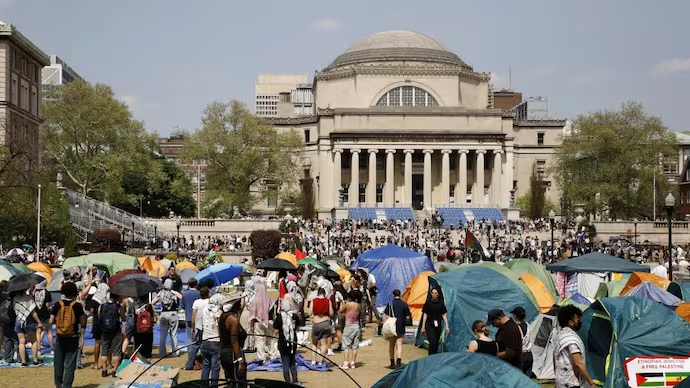Columbia University has introduced significant policy reforms in response to growing concerns over antisemitism on its campus. The decision follows intense federal scrutiny that led to the Trump administration freezing approximately $400 million in federal funding. Amid rising tensions, Columbia has now committed to implementing stricter regulations on protests, disciplinary measures, and academic oversight.
One of the key policy changes is a ban on wearing masks during protests. This measure aims to ensure transparency and accountability during campus demonstrations, preventing any form of anonymity that could contribute to hate speech or violence. By enforcing this rule, the university seeks to create a safer and more controlled environment for discussions and demonstrations.
Additionally, Columbia has strengthened its disciplinary policies by introducing stricter consequences for students who violate university guidelines during protests or other campus activities. The administration believes that these measures will help maintain a respectful academic atmosphere while discouraging disruptive behavior that could escalate tensions between different student groups.
Another major reform is the empowerment of campus police to make arrests when necessary. This decision underscores the university’s commitment to upholding law and order within its premises. With this change, authorities hope to deter any incidents of hate speech, harassment, or violence while ensuring that students feel safe expressing their views within appropriate boundaries.
Columbia University is also focusing on structural changes within its academic departments. It has pledged to appoint new leadership in key departments, including the Middle Eastern, South Asian, and African Studies departments, as well as the Center for Palestine Studies. This move is intended to ensure a balanced and fair approach to discussions surrounding geopolitical issues while promoting an inclusive learning environment. The university aims to address concerns that certain academic programs have been used to promote biased narratives, leading to an increase in campus tensions.
The policy reforms come at a time when universities across the United States are under increasing pressure to combat antisemitism and ensure that all students, regardless of their religious or cultural background, feel safe and respected. Columbia’s proactive measures demonstrate its willingness to adapt and respond to concerns while maintaining its reputation as a leading institution of higher education.
By implementing these changes, Columbia hopes to restore federal confidence and secure the reinstatement of its funding. The university acknowledges that these reforms are necessary to maintain a balanced academic environment and uphold its commitment to free speech while preventing discrimination and hate speech.
As Columbia moves forward with these policies, it sets a precedent for other universities facing similar challenges. The case serves as a reminder that institutions must continuously evaluate and adapt their policies to foster an environment that promotes both free expression and inclusivity.











